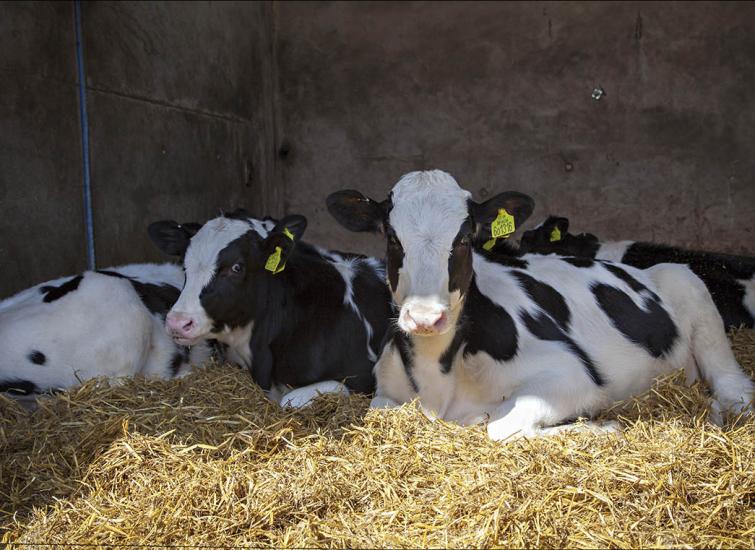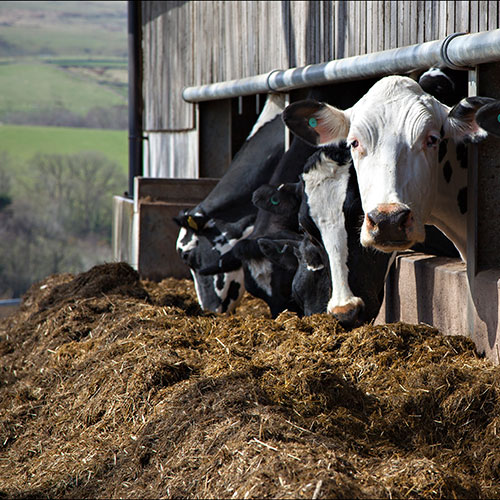We wanted to improve our overall cow health and mobility, so we worked together with Advanced Nutrition. Their Advanced Mobility program helped to give us a true understanding of the lameness and mobility issues we had within the herd.
Heifer Rearing in the Summer
Our heifer rearing manager Liz Newman talks about the key points to address in the summer to ensure healthy dairy youngstock.

With the warmer weather upon, Liz Newman takes us through what challenges may appear in the upcoming summer months and how to tackle them.
Dietary changes for youngstock at grass
The transition of housed youngstock going out to grass is a big dietary change. We therefore recommend everything under 6 months old stays inside, as their rumens are not fully developed and would not be able to utilise the grass. Those going outside should have had at least 2 weeks of silage to start to adjust their rumens. You’ll need to think about vitamin and mineral supplementation and supplementary feeding. Monitor their behaviour and watch out for any signs of stress. In hot weather it's also important that adequate shelter is provided and easy access to fresh clean water to prevent heat stress which would have a negative impact on Daily Live Weight Gain (DLWG).
Heat Stress
Heat can be an issue over the summer months and it’s not necessarily just a case of keeping an eye on the mercury. A calf’s upper critical temp is just 25°C, so it's crucial this is monitored to ensure energy is used for growing and not for cooling down. Two main considerations are therefore water and shade…
Water
Water, water, water – it may sound like a normal thing to mention but you’d be surprised at the number of calves we see not getting adequate clean water. Water drives intakes, which in turn aids rumen development and DLWG to produce healthy calves. It’s important to clean and empty troughs regularly to prevent disease and we recommend that you test bacteria levels, mineral content and pH. Make sure all water is out of direct sunlight and refreshed daily.
Shade
Shade is therefore important to consider both for housed and grazed youngstock. For housed calves, monitor the temperature in the shed. If you leave a thermometer in there daily and start to record temperatures this will help you to plan what you need to prevent heat stress.
Bedding and stocking density
Think about bedding, sawdust can be a lot cooler than straw. Where possible reduce stocking density to reduce the temperature in your sheds.
Pathogens
For housed calves it’s important to look at airflow. Wet warm environments encourage pathogens to multiply so make sure there is sufficient air flow to keep air fresh in sheds. Insects can be a problem with both housed and grazed youngstock. Keep on top of flies, they can quickly transfer bacteria animal to animal. We would also recommend that you talk to your vet about tackling worms and parasites in the summer months to ensure you have a prevention plan in place.
These are just a few hints and tips to help you through the summer months and primarily address the calves’ environment. Our Advanced Heifer program is a data-driven, total farm approach that’s bespoke to your farm business. Liz analyses current productivity, profitability and efficiency of your heifer rearing system. Collaborating with the full farm team and industry experts, they create a path towards better lifetime performance.
〈 BACK




